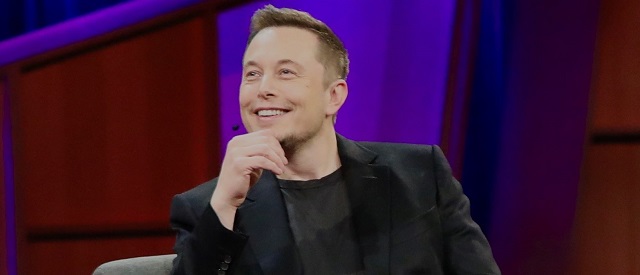Business
Elon Musk Sues Literal Globalists For Alleged Advertising Conspiracy Against Him

From the Daily Caller News Foundation
By HAILEY GOMEZ
Billionaire Elon Musk declared “war” on Tuesday after filing a lawsuit against a handful of advertisers for allegedly violating antitrust laws by illegally boycotting his social media company and depriving X billions in revenue.
Musk and X Corp. CEO Linda Yaccarino took to the social media platform to address the lawsuit against the Global Alliance for Responsible Media (GARM), the World Federation of Advertisers, and GARM members CVS Health, Mars, Orsted and Unilever. The lawsuit claims the group of advertisers allegedly “conspired” to withhold billions in revenue from the social media company by coordinating a group boycott against advertising on the platform after Musk bought the company in 2022.
Yaccarino discussed the company’s decision in an open letter to advertisers, calling them out for choosing to “dismiss the facts” despite the company’s massive user growth jumping 25% since August 2022.
“The illegal behavior of these organizations and their executives cost X billions of dollars. Since arriving at X, I made it my mission to continue to build a platform where people, brands and advertisers can thrive in our unique, dynamic and safe environment,” Yaccarino wrote.
“We have proven our platform provides advertisers a way to showcase their brands and reach their target audiences safely, efficiently and effectively. That’s why I’ve worked in good faith with marketers across the globe to showcase our innovations and allay any concerns with brands whom I’ve partnered with for decades,” Yaccarino continued. “The unfortunate reality is that despite all our efforts, hundreds of meetings and research to the contrary, many companies chose to dismiss the facts. To those who broke the law, we say enough is enough.”
Musk commented on the announcement, responding to Yaccarino’s post with, “We tried peace for 2 years, now it is war.”
We tried peace for 2 years, now it is war https://t.co/elgT62uDtF
— Elon Musk (@elonmusk) August 6, 2024
The U.S. House of Representatives Judiciary Committee released a report in July on GARM’s harm to online speech. The Committee obtained evidence that shows GARM “and its members directly organized boycotts and used other indirect tactics to target disfavored platforms, content creators, and news organizations in an effort to demonetize and, in effect, limit certain choices for consumers.”
X’s advertising revenue dropped nearly 60% between April 2023 to May 2023. Major companies such as Apple, Amazon and Disney were among the group to either decrease or pause spending on the platform following Musk’s take over, with some ad agencies blaming misinformation and hate speech as a reason.
A federal judge ruled against Google on Monday, stating the major tech company violated antitrust law through its search business.
Featured Image Credit: Flickr/Steve Jurvetson
Business
DOGE discovered $330M in Small Business loans awarded to children under 11

 MxM News
MxM News
Quick Hit:
In a bombshell revelation at a White House cabinet meeting, Elon Musk announced that the Department of Government Efficiency (DOGE) had uncovered over $330 million in Small Business Administration (SBA) loans issued to children under the age of 11.
Key Details:
- Elon Musk stated that DOGE found $330 million in SBA loans given to individuals under the age of 11.
- The youngest recipient was reportedly just nine months old, receiving a $100,000 loan.
- SBA has now paused the direct loan process for individuals under 18 and over 120 years old.
Diving Deeper:
At a cabinet meeting held Monday at the White House, President Donald Trump and Elon Musk detailed a staggering example of federal waste uncovered by the newly-formed Department of Government Efficiency. Speaking directly to ongoing efforts to eliminate corruption and abuse in federal agencies, Musk explained that the SBA had awarded hundreds of millions in loans to children—some of whom were still in diapers.
“A case of fraud was with the Small Business Administration, where they were handing out loans — $330 million worth of loans to people under the age of 11,” Musk said. “I think the youngest, Kelly, was a nine-month year old who got a $100,000 loan. That’s a very precocious baby we’re talking about here.”
DOGE’s findings forced the SBA to abruptly change its loan procedures. In a post on X, the department revealed it would now require applicants to include their date of birth and was halting direct loans to those under 18 and above 120 years old. Musk commented sarcastically: “No more loans to babies or people too old to be alive.”
The discovery was just the latest in a series of contract cancellations and fraud crackdowns led by DOGE. According to Breitbart News, DOGE recently canceled 105 contracts totaling $935 million in potential taxpayer liabilities. The agency’s website currently lists over 6,600 terminated contracts, accounting for $20 billion in savings.
The president praised Musk and DOGE for rooting out government inefficiencies, noting his administration was focused on “cutting” people and programs that were not working or delivering results. “We’re not going to let people collect paychecks or taxpayer funds without doing their jobs,” Trump said.
Also during the cabinet session, USDA Secretary Brooke Rollins revealed her department had eliminated a $300,000 program aimed at teaching “food justice” to transgender and queer farmers in San Francisco. “I’m not even sure what that means,” Rollins said, “but apparently the last administration wanted to put our taxpayer dollars towards that.”
These revelations highlight what many conservatives have long suspected—that during prior administrations, including under President Joe Biden, massive amounts of federal funding were funneled into unserious, ideologically-driven projects and mismanaged government programs. Under the Trump administration’s second term, DOGE appears to be living up to its mission: trimming fat, exposing fraud, and putting American taxpayers first.
Business
Cuba has lost 24% of it’s population to emigration in the last 4 years

 MxM News
MxM News
Quick Hit:
A new study finds Cuba has lost nearly a quarter of its population since 2020, driven by economic collapse and a mass emigration wave unseen outside of war zones. The country’s population now stands at just over 8 million, down from nearly 10 million.
Key Details:
- Independent study estimates Cuba’s population at 8.02 million—down 24% in four years.
- Over 545,000 Cubans left the island in 2024 alone—double the official government figure.
- Demographer warns the crisis mirrors depopulation seen only in wartime, calling it a “systemic collapse.”
Diving Deeper:
Cuba is undergoing a staggering demographic collapse, losing nearly one in four residents over the past four years, according to a new study by economist and demographer Juan Carlos Albizu-Campos. The report estimates that by the end of 2024, Cuba’s population will stand at just over 8 million people—down from nearly 10 million—a 24% drop that Albizu-Campos says is comparable only to what is seen in war-torn nations.
The study, accessed by the Spanish news agency EFE, points to mass emigration as the primary driver. In 2024 alone, 545,011 Cubans are believed to have left the island. That number is more than double what the regime officially acknowledges, as Cuba’s government only counts those heading to the United States, ignoring large flows to destinations like Mexico, Spain, Serbia, and Uruguay.
Albizu-Campos describes the trend as “demographic emptying,” driven by what he calls a “quasi-permanent polycrisis” in Cuba—an interwoven web of political repression, economic freefall, and social decay. For years, Cubans have faced food and medicine shortages, blackout-plagued days, fuel scarcity, soaring inflation, and a broken currency system. The result has been not just migration, but a desperate stampede for the exits.
Yet, the regime continues to minimize the damage. Official figures from the National Office of Statistics and Information (ONEI) put Cuba’s population at just over 10 million in 2023. However, even those numbers acknowledge a shrinking population and the lowest birth rate in decades—confirming the crisis, if not its full scale.
Cuba hasn’t held a census since 2012. The last scheduled one in 2022 has been repeatedly delayed, allegedly due to lack of resources. Experts doubt that any new attempt will be transparent or complete.
Albizu-Campos warns that the government’s refusal to confront the reality of the collapse is obstructing any chance at solutions. More than just a demographic issue, the study describes Cuba’s situation as a “systemic crisis.”
“Havana (Cuba, February 2023)” by Bruno Rijsman licensed under CC BY-SA 2.0 DEED.
-

 Economy2 days ago
Economy2 days agoSupport For National Pipelines And LNG Projects Gain Momentum, Even In Quebec
-

 Health2 days ago
Health2 days agoDr. Pierre Kory Exposes the Truth About the Texas ‘Measles Death’ Hoax
-

 Business1 day ago
Business1 day agoDOGE discovered $330M in Small Business loans awarded to children under 11
-

 Economy2 days ago
Economy2 days agoSolar and Wind Power Are Expensive
-

 Business2 days ago
Business2 days agoWhy a domestic economy upgrade trumps diversification
-

 COVID-1923 hours ago
COVID-1923 hours ago17-year-old died after taking COVID shot, but Ontario judge denies his family’s liability claim
-

 2025 Federal Election1 day ago
2025 Federal Election1 day agoThe High Cost Of Continued Western Canadian Alienation
-

 Business2 days ago
Business2 days agoAll party leaders must oppose April 1 alcohol tax hike





